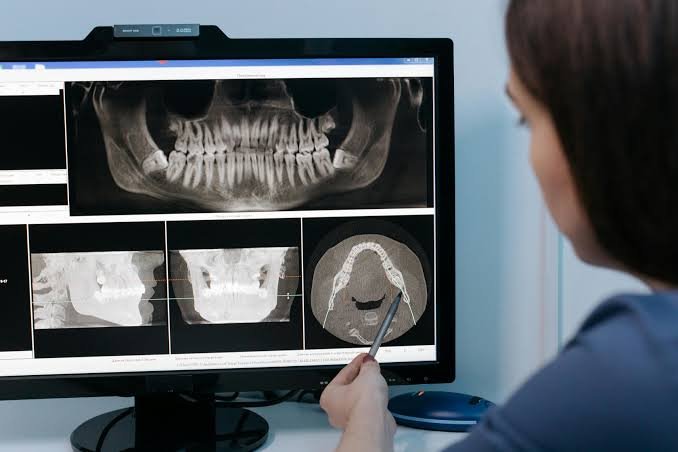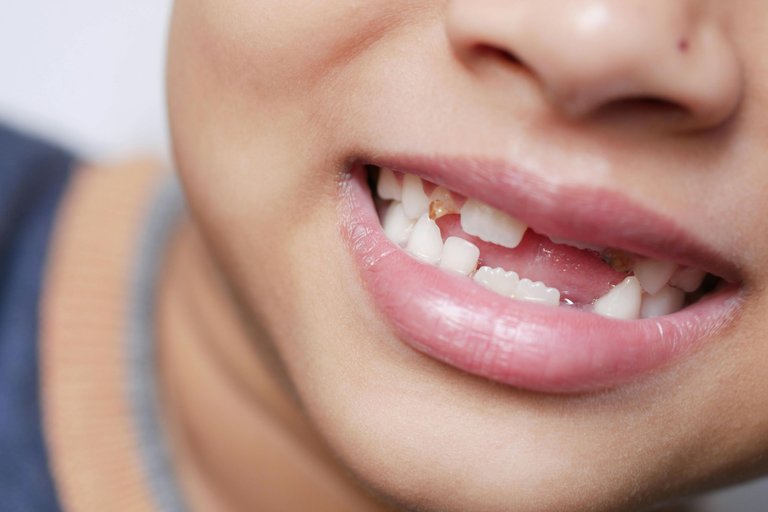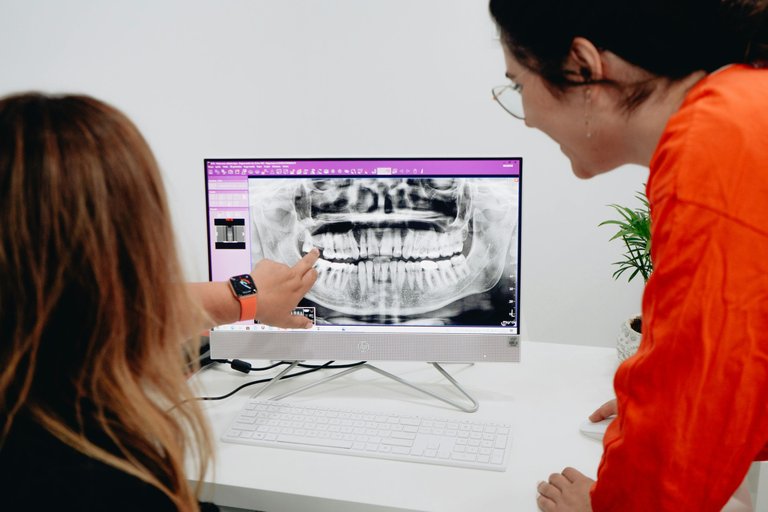Dental X-Rays ( Radiographs)
Hello everyone 💋
Do you know that dental x-rays are a type of image of the teeth and mouth. X-rays are a form of high energy electromagnetic radiation. The x-rays penetrate the body to form an image on film or screen. X-rays can either be digital or developed on a film. x-rays helps your dentist see the jaw bone, the roots of the teeth, or teeth that have not yet erupted, as well as the contact areas between the teeth. In some cases, x-rays can reveal a condition at an early stage, when it is easier to treat.

Another name for x-rays is dental Radiographs, it is commonly known as x-rays used to diagnose hidden dental structures, malignant or benign masses, bone loss and cavities.
IS DENTAL X-RAYS PAINFUL ?
Most people do not find having the sensor in their mouth uncomfortable. However, people with smaller mouths or strong gag reflexes are more likely to be bothered by having to keep an x-ray sensor in their mouths.
TYPES OF X-RAYS;
-bitewing:This x-rays shows decay between the teeth ( interproximal decay). Sometimes occlusal decay can also be seen on a bitewing film.
-periapical: This x-rays shows the crown of an impacted molar.
-panoramic x-rays: this x-rays shows developing permanent teeth that have not yet erupted.
-occlusal: this x-rays shows an unerupted tooth.
-complete mouth: series of bitewing and periapical x-ray shows all of the teeth, roots and related areas of the jaws.
-CBCT(cone-beam computer tomography) CBCT images can show more details than x-rays.
CAN DENTAL X-RAYS AFFECT THE EYES?
It is common to experience a dull pain in exposed tissues, including the eyes, within 1 to 3 hours of the x-ray radiation exposure. Exposure to x-rays radiation can also cause swelling and first degree burns.
HOW OFTEN SHOULD A DENTAL X-RAYS BE TAKEN?
According to the ADA'S own record's, a person in good health with lowered risk of dental disease can have dental x-rays taken every 24 to 36 months. Though a dentist may be able to see your cavity without an x-ray if the cavity is large or in an easily visible location on the front or side of your tooth.
SOME CONDITIONS X-RAYS CAN HELP DETECT:
A) small areas of decay in the teeth or below fillings..

B) bone diseases
Source

C) abscesses or cyst
D) signs of periodontal diseases
E) some types of tumors
F) signs of trauma
G) developmental and other defects
H) positions of tooth and jaw bones
The fact of the matter is, dental x-rays are incredibly important. They help to diagnose or take a peek at what really is going on in your mouth.
Thank you for reading 💋
Congratulations @somsome17! You have completed the following achievement on the Hive blockchain And have been rewarded with New badge(s)
Your next target is to reach 100 replies.
You can view your badges on your board and compare yourself to others in the Ranking
If you no longer want to receive notifications, reply to this comment with the word
STOPCheck out our last posts: